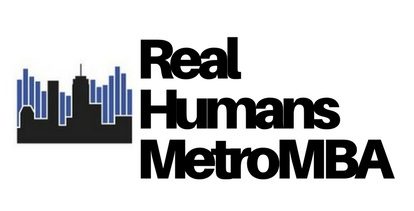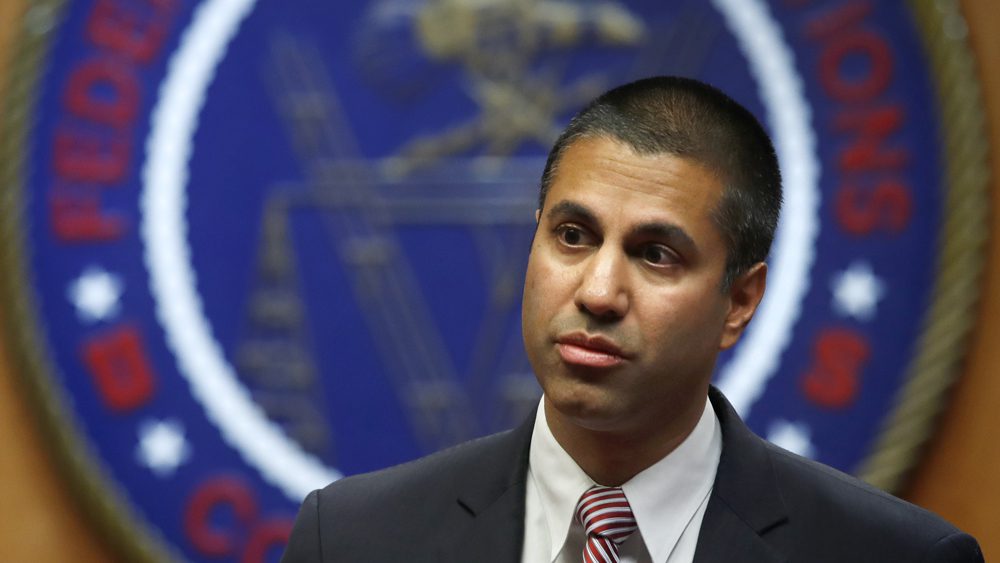U. Michigan MBA Deadlines Updated

Hopeful applicants to the next full-time MBA class at the Stephen M. Ross School of Business at the University of Michigan
have some new deadlines to remember.
New Michigan MBA Deadlines
Round One
Application Deadline: Sep. 30, 2019
Decision Deadline: Dec. 18, 2019
Round Two
Application Deadline: Jan. 6, 2020
Decision Deadline: March 18, 2020
Round Three
Application Deadline: March 30, 2020
Decision Deadline: May 8, 2020
Learn more about the Michigan Ross full-time MBA program here.
Real Humans of the University of Michigan Ross School of Business Part-Time MBA Program

For MBA hopefuls looking to enroll in a part-time program in the United States, there is a certain unspoken caveat. While the part-time is often presented as the malleable, flexible alternative to the traditional full-time program, it is often just a different restrictive version. For many schools, even some of the most prestigious in the country, the choice between full-time and part-time is simply just two options. However, the University of Michigan Stephen M. Ross School of Business has continually expanded the parameters of what a part-time program can truly be.

The Michigan Ross part-time MBA, ranked as the sixth best in the country according to U.S. News & World Report, isn’t simply a longer version of the full-time offering. Rather, the school gives potential students three indelibly different avenues to take. The 60 credit part-time Evening MBA, perhaps the most “traditional” part-time offering from the school, allows students to craft their own academic schedule, with classes offered after work on weeknights, weekends, and online. Some courses can even be taken during the day with the full-time MBA cohort at the school’s Ann Arbor campus. The part-time Weekend MBA offers a more compressed schedule, in comparison, with classes held every other weekend. In contrast to the Evening MBA offering, which takes three-to-four years to complete, the Weekend MBA offering can be finished in just two years.
Two part-time MBA variations may not seem unconventional, but few schools regularly lauded as much as Michigan Ross (10th overall in U.S. News & World Report, 19th globally in Bloomberg) also have the option of an Online MBA.
In late 2018, Michigan Ross introduced its brand new Online MBA program, embracing the ever-changing business school landscape head on. It wasn’t too long ago that the idea of an online degree, never mind an online MBA, was met with heavy skepticism, with major academic institutions sticking with traditional degrees despite the oncoming sea change. And while the inclusion of the online option to its part-time MBA opportunities may have seemed unorthodox at first glace, the administration crafted it as carefully as it does all its MBA programs.
In a recent interview with MetroMBA, Anne Schoen, Associate Admissions Director of Part-Time MBA Programs, talks about how the Online MBA features all-important elements found all of the school’s MBA curriculum:
“One of the signature features of a Michigan Ross MBA is an emphasis on action-based learning, and our Part-Time MBA: Online is no exception. Our three required on-campus residential experiences and required Multidisciplinary Action Project (MAP) course set us apart from other online programs. Our students will enjoy the flexibility of an online program, but also will benefit from engaging in-person with faculty and fellow students during these fully immersive experiential learning projects. These experiences will require that students take the theories they learn in class and apply them to real-world business scenarios. We also will offer our online students full access to our Career Development Office resources, including assistance with on-campus and off-campus recruiting, and individualized career development planning.”
When talking with several Michigan Ross part-time MBA Class of 2020, the school’s expansive options seem to reflect the diverse background of its students, of which include an experienced engineer from Kanpur, India, a former restaurant manager from New England, and a Canadian chemist, among others. Read on to see their stories and what the future may hold for life after an MBA.
Michigan Ross’ Associate Admissions Director Answers 5 Questions

In our latest installment of the MetroMBA “5 Questions” series, we speak with Anne Schoen, the Associate Admissions Director of Part-Time MBA Programs at the University of Michigan Ross School of Business. Schoen talks about the newest Ross MBA program, changing the Online MBA game, and what this means for the future of business schools.
1. Why do you believe the Ross School of Business elected to start offering an online MBA now?
“More and more companies are operating on a global scale, and professionals need to be able to effectively interact with and manage teams across those global boundaries. Managing a project with team members in four different locations presents a different challenge than if those team members all work in the same building. We see educational value in preparing our students to work and engage through primarily virtual channels. Professionals who possess this unique skill set can differentiate themselves in the career marketplace.
In addition, technology (connectivity, learning platforms, virtual tools, etc.) today is at a place where we feel comfortable that an online experience can rival what we offer in our on-campus programs.
Finally, we are answering a demand in the market. For years, we have heard prospective students tell us they really wanted a top-tier MBA experience but require more flexibility in course scheduling and graduation pace. There are amazing working professionals out there desiring a premier educational experience whom this program can serve.”
2. What do you believe are the integral differences between this online program and others currently available at other schools?
“One of the signature features of a Michigan Ross MBA is an emphasis on action-based learning, and our Part-Time MBA: Online is no exception. Our three required on-campus residential experiences and required Multidisciplinary Action Project (MAP) course set us apart from other online programs. Our students will enjoy the flexibility of an online program, but also will benefit from engaging in-person with faculty and fellow students during these fully immersive experiential learning projects. These experiences will require that students take the theories they learn in class and apply them to real-world business scenarios. We also will offer our online students full access to our Career Development Office resources, including assistance with on-campus and off-campus recruiting, and individualized career development planning.”
3. What do you believe other online programs may be missing?
“We have been very intentional in the development of the online MBA program to ensure that students in this program have the same access and a similar experience to those students enrolled in our on-campus MBA programs. We are holding applicants to the same rigorous admissions standards, keeping the class size fairly small, providing them with the resources needed to advance their careers or make a career switch, giving them a connection to campus and the vast Ross network through residencies, and offering lifelong learning opportunities through our AlumniAdvantage program.”

The all-new Part-Time MBA: Online at the University of Michigan Ross School of Business offers students a flexible, online schedule, coupled with the business school’s hands-on curriculum approach, featuring on-campus residencies and the Multidisciplinary Action Project (MAP) course.
4. If someone couldn’t decide between Ross’ part-time online MBA and the other options at the school, what factors do you think should push them to the online program?
“I think the two major factors students should consider when choosing between program options at Ross are geography and flexibility. Our Part-Time MBA: Evening program, while flexible in nature, is really only an option for people living in the region because class meetings take place primarily on weeknights. Our Part-Time MBA: Weekend program attracts student from across the country looking for a lockstep, cohort-based program. The Part-Time MBA: Online is flexible—students’ progress at their own pace—while also being open to people across the U.S. I always tell students to select the MBA program based on what format is going to work best for their own busy working-professional and personal schedules. The great thing is that we have many MBA formats that feature the same rigorous Ross curriculum. Regardless of schedule, one of our program options will likely meet your needs.”
5. Is this a sign for more online programs to come for the Ross School of Business?
“That is an excellent question. Here at Ross, we are always looking at new ways to innovate our programs and ensure that our elite learners have an exceptional educational experience. We will continue to evaluate the changing MBA landscape and needs in higher education and our offerings. Today, we are focusing our energy and resources on successfully launching the Part Time MBA: Online program and recruiting our first class of students.”
For those interested in learning more about the Ross Part-Time: Online program, head over to the school’s official website.
Coffee Brains, Case Writing, and More – New York News

Let’s explore some of the most interesting stories that have emerged from New York business schools this week.
This Is Your Brain On Coffee: Beyond Health Benefits, Even the Smell May Fuel Higher Test Scores – Stevens Institute of Technology College of Business Blog
New research published in the Journal of Environmental Psychology finally confirmed your suspicion: yes, your coffee is making you smarter. Well, maybe. Science is tricky and all that.
In the research, officially released earlier this year, Stevens School of Business professor Adriana Madzharov and colleagues from Temple and Baruch found that the scent of coffee helped people perform tasks better and even improved test scores. Interestingly enough, the researchers concluded that the effect of even just smelling coffee could be as beneficial as consuming it.
“It’s not just that the coffee-like scent helped people in our study perform better on analytical tasks, which was already interesting,” Madzharov writes. “But they also thought they would do better, and we demonstrated that this expectation was at least partly responsible for their improved performance. In short, smelling a coffee-like scent, which has no caffeine in it, still has a placebo effect similar to drinking coffee.”

New research reveals that the scent of coffee can help you with daily tasks and tests, even if you do not consume it.
She adds, “This finding also has useful multiple practical implications in business for workplace professionals, architects, building developers, retail space managers and others.”
You can read the full article here.
A Rutgers Team Brings a Professor’s Lesson to Life – Rutgers Business School Blog
Rutgers Business School Professor of Marketing Can (John) Uslay recently took home first place in a recent case-writing competition put together by the University of Michigan’s William Davidson Institute.
Professor Uslay’s entry was based on Roshni Rides, a “rickshaw transportation company created and piloted by a team of Rutgers Business School students,” which won the “$1 million Hult Prize for social entrepreneurship in 2017 after a compelling presentation about how their company could help improve the lives of refugees living in the Orangi Town settlement.
Professor Uslay outlined “the challenges the team faced, specifically their effort to find a price point that would keep the cost of the service affordable and still enable the company to grow.”
You can check out the full interview with Professor Uslay here.
The Business Case for Sustainable Tourism Management of Protected Areas – SC Johnson Business Feed
Tom Olson, a recent Johnson Cornell MBA graduate, recently published an op-ed about the growing need for “developed, emerging, and frontier markets” to develop more sustainable management structures to accommodate increased tourism.
Enter the Tourism and Protected Area Specialist (TAPAS) Group; a subgroup of the International Union for the Conservation of Nature (IUCN) “dedicated to advancing sustainable tourism initiatives in protected areas.”
Olson writes that he was tasked by TAPAS Group to “analyze, develop, and recommend a revenue generation model that would be financially sustainable, align with IUCN’s values, and be accepted by the broader community of sustainable tourism professionals.”
You can read Olson’s full op-ed here.
Who are the Most Important Female Leaders in Business School Today?

Being a woman in business isn’t easy. While the industry works to improve gender equality, there is still a long way to go. Currently, women only hold 18.1 percent of directorships at publicly held companies. According to the latest report from MSCI, a research and analytics firm for investors, it could be until 2027 before women fill 30 percent of those roles.
And women in business school face similar struggles. Just five years ago, only three of the top 25 schools in the United States had 40 percent or more women enrolled in its MBA programs. And while, currently, nearly half have reached that mark, gender parity is still a ways off. Part of the struggle has to do with female leaders in business school. Currently, there’s only one female dean at a top-tier business school, and there are few other women who’ve made it to the top of their business schools as deans.
The challenges faced by female business school leaders are myriad, which is why we felt it was so important to recognize those women who’ve become prominent leaders in business schools around the world. Continue reading…
The Potential Impacts of Net Neutrality on Higher Education

F.C.C. Chairman Ajit Pai’s decision last week to repeal Obama-era net neutrality regulations, which inhibited ISPs from paid prioritization and interfering with users’ online experiences, could have widespread implications beyond the speed of your Netflix stream.
A host of critics argue that the controversial new initiative essentially deregulates the Internet from a governmental vantage point and gives ISPs (internet service providers) free reign to control what you see as they see fit. That could mean offering fast lanes to the highest bidder—at the consumer’s expense, naturally—or censoring any content that might be remotely critical of, say, AT&T’s political position.
Pai believes the repeal will foster competition and ultimately benefit consumers. “Broadband providers will have more incentive to build networks, especially to underserved areas,” he told the NY Times after the F.C.C. cast its final votes on December 14. The vote split directly on party lines, with Republican commissioners winning by a count of 3-2.
After the vote was concluded, Mignon Clyburn, one of the two Democratic commissioners to vote no on the new provisions, said, “I dissent, because I am among the millions outraged. “Outraged, because the F.C.C. pulls its own teeth, abdicating responsibility to protect the nation’s broadband consumers.”

F.C.C. Chairman Ajit Pai. Photo via AP/Jacquelyn Martin
In terms of public relations, ISPs appear conflicted about which foot to lead with. According to Wired, in the months leading up to the repeal, Comcast publicly shared a net neutrality pledge and then quietly removed it once the votes were concluded, while Verizon promised not to open up fast lanes when it “already blocks mobile subscribers from accessing high-resolution video streams unless they upgrade to more expensive plans.”
It’s clear that this F.C.C. decision is a crippling blow to the utopian promise of the Internet, whose innovations were outgrowths of a level playing field. Netflix voiced disappointment last Friday, in which the company said “innovators, large and small, to oppose this misguided F.C.C. order.”
Consumer advocates are deeply concerned about the repeal’s impact on higher education, particularly in a moment where educators increasingly rely on YouTube lectures, video-chat services, and distance learning applications for their curricula.
There’s a scene in Werner Herzog’s 2016 documentary“Lo and Behold” in which he interviews Udacity founder and Stanford professor Sebastian Thrun about a robotics seminar, which was made available to the general public through open courseware technology. Two-hundred Stanford students enrolled in the class along with 160,000 students from the “open world.” Upon realizing that the highest achieving Stanford student ranked 413rd overall, Thrun remarked, “My God, for every great Stanford student, there are 412 amazingly great, even better students in the world.”
In an interview with Wired, Washington State University Vancouver’s Mike Caulfield explains, “Killing net neutrality will throw us back to the Dark Ages and the people that is likely to hurt most are actually rural populations that don’t have face-to-face access.”
In an interview with EdWeek, Consortium for School Networking Executive Director Keith Krueger explained matter-of-factly, “School systems will now face a bleak reality: reduced choices, higher prices, and fewer innovative tools.”
The introduction of “slow lanes” has the potential to impact peer-to-peer interactions like videoconferencing, as well as institution-wide adoptions of cloud-based models. Caufield explains, “Science or programming courses might require students to download large data sets that, if relegated to a slow lane, would take a prohibitive amount of time to download, or could help burn through data caps.”
There is a more pervasive worry that “education companies that rely on relatively fast delivery of content to schools could lose out to deep-pocketed vendors that can afford to pay internet service providers more for faster, higher-quality access,” according to an EdWeek article.
In a captivating Medium entry, Tressie McMillan Cottom, a sociology professor at Virginia Commonwealth University and faculty associate at the Berkman Center for Internet & Society, says that while changes to how Americans use the internet might not change right away, it will likely affect the amount of resources available to students who utilize online education.
“Online education was built, and sold to stakeholders, on the premise of affordable, accessible internet access,” Cottom writes.
“The concern is that companies tend to want to maximize profit. It isn’t hard to imagine telecom companies allowing companies who can pay for premium internet space to skew what is and is not available on the internet.”
Cottom telegraphs what she calls the “doomsday predictions”: charging escalating prices for basic internet consumption, leaving poorer, disadvantaged users with worse options. And that, Cottom explains, doesn’t even consider the potential socio-political ramifications. “For many, the end of net neutrality also means the regulation-by-capital of online spaces where minority groups shut out of traditional media, politics, and economies have thrived (albeit always at the precipice of precarity),” she says.
Other critics, such as University of Michigan professor Kentaro Toyama, in an recent interview with EdSurge, says that the issue was not the repeal vote, but the “already eroding” nature of the internet itself. “Technical systems are predominantly paid for and operated by private companies, which exert a lot of control,” he notes.
Indeed, before the vote, some of the largest ISPs were already practicing speed-throttling tactics, such as Comcast’s “unlimited” phone data plans that slow down after 20GB of use, and Verizon, which was caught earlier this year slowing down user speed.
But when it comes to higher education, Toyama is not worried. “Though there might be some marginal impact on the degree to which online courses like mine could be viewed by any given student, it is unlikely to be at a level noticeable by the average user,” he says.
The F.C.C. responded in defense of their new initiative that ISPs will have to publicly disclose any practices that block or throttle access to online resources, but Ed-tech advocates believe these so-called “transparency requirements” will simply force education officials to accept whatever terms are placed in front of them.
